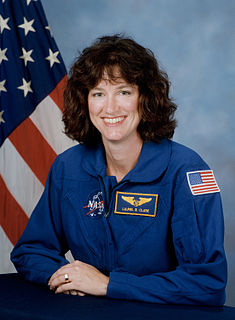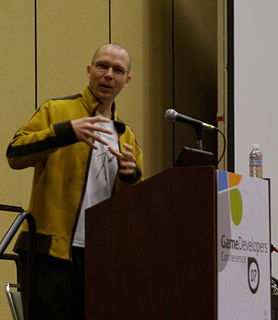A Quote by Lisa Randall
We have this very clean picture of science, you know, these well-established rules with which we make predictions. But when you're really doing science, when you're doing research, you're at the edge of what we know.
Related Quotes
I wanted to be a scientist. My undergraduate degree is in biology, and I really did think I might go off and be some kind of a lady Darwin someplace. It turned out that I'm really awful at science and that I have no gift for actually doing science myself. But I'm very interested in others who practice science and in the stories of science.
This example illustrates the differences in the effects which may be produced by research in pure or applied science. A research on the lines of applied science would doubtless have led to improvement and development of the older methods - the research in pure science has given us an entirely new and much more powerful method. In fact, research in applied science leads to reforms, research in pure science leads to revolutions, and revolutions, whether political or industrial, are exceedingly profitable things if you are on the winning side.
You know, in college, I never got either degree, but I was a double-major in Computer Science and English. And English at Berkeley, where I went to school, is very much creatively-driven. Basically, the entire bachelor's degree in English is all about bullshitting. And Computer Science, which was my other major, was exactly the opposite of that. You had to know what you were doing, and you had to know what you were talking about.
"Endow scientific research and we shall know the truth, when and where it is possible to ascertain it;" but the counterblast is at hand: "To endow research is merely to encourage the research for endowment; the true man of science will not be held back by poverty, and if science is of use to us, it will pay for itself." Such are but a few samples of the conflict of opinion which we find raging around us.
Literary science fiction is a very, very narrow band of the publishing business. I love science fiction in more of a pop-culture sense. And by the way, the line between science fiction and reality has blurred a lot in my life doing deep ocean expeditions and working on actual space projects and so on. So I tend to be more fascinated by the reality of the science-fiction world in which we live.
I think my science career had an arc to it that peaked in, let's say 2003/2004. I was in hog heaven, working in a corporation, getting paid pretty good money and doing really exciting research. And we had just done the Cool To Be You record, and I said well, we'll put this record out, but I can't tour it because I just want to do science. That's my gig, my future.
There are types of energy which lie outside the electromagnetic spectrum. Unfortunately, these research efforts have not been given recognition. For the most part, they have been performed by individuals without any support, whose work lies at the threshold of present-day science, and who are years ahead of science which is already established.
Science is like society and trade, in resting at bottom upon a basis of faith. There are some things here, too, that we can not prove, otherwise there would be nothing we can prove. Science is busy with the hither-end of things, not the thither-end. It is a mistake to contrast religion and science in this respect, and to think of religion as taking everything for granted, and science as doing only clean work, and having all the loose ends gathered up and tucked in. We never reach the roots of things in science more than in religion.





































